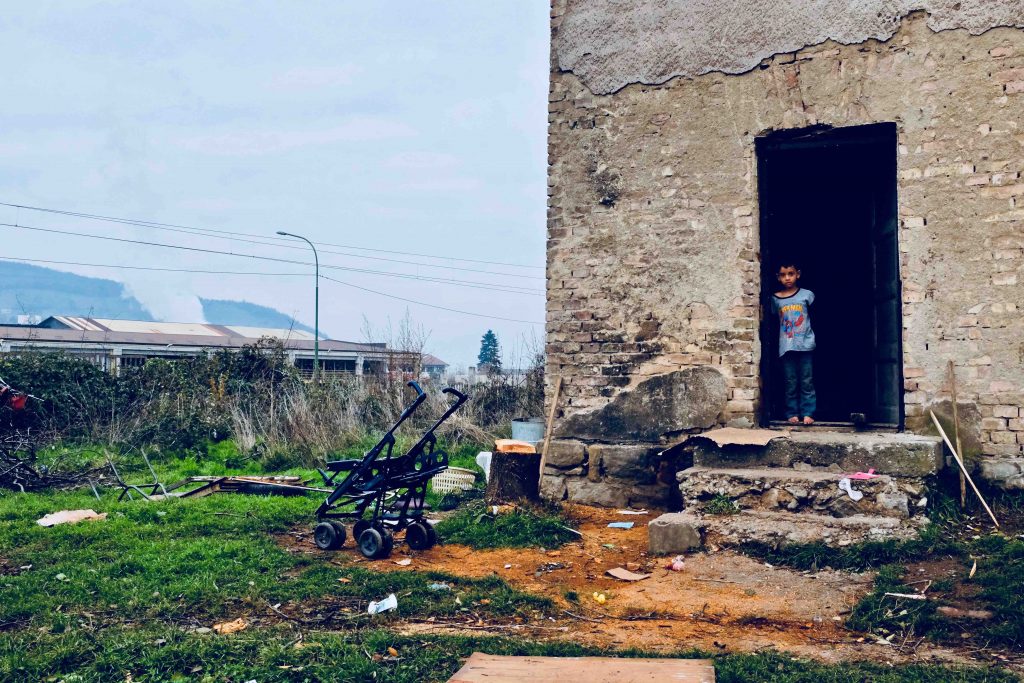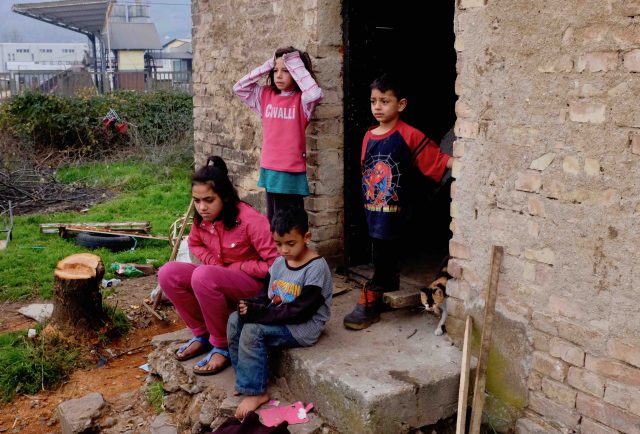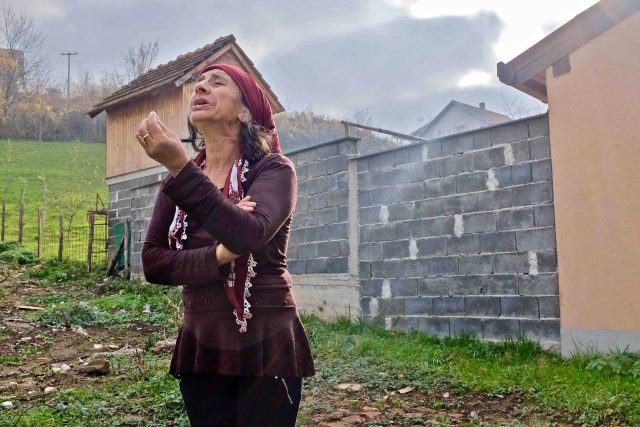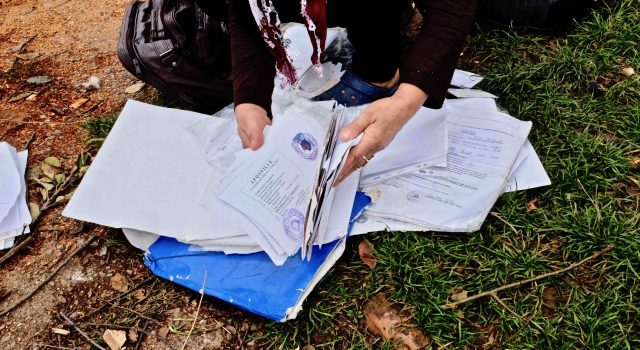
In the small town of Ilijaš just north of Sarajevo, a Roma family wearily explains the severe hunger they face after they have been persistently turned away from the local soup kitchen.
“My children and I have nowhere to go and the municipality won’t even let us use the soup kitchen. ” – Husnije Iljazi –
In the small town of Ilijaš just north of Sarajevo, a Roma family wearily explains the severe hunger they face after they have been persistently turned away from the local soup kitchen.
Living without consistent meals is a fact of life for the Sadiki family, a circumstance evidenced by the faded packages of snack food that lie empty in their yard. In addition to the hunger they must face, they have now also been evicted from the residence that they’ve called home for over a decade. The family’s only option was to move across the street into a dilapidated building without water, heat, electricity, doors, or even windows. The children have been forced to beg in the streets and, due to their lifestyle, experience a higher risk of becoming victims of human trafficking.
Shortly after hearing of the family’s plight, Balkan Diskurs paid a visit to the Sadiki family at their former residence in Ilijaš, a town 20 minutes north of Bosnia and Herzegovina’s capital city of Sarajevo. Upon arrival, their current conditions were made painfully clear.
A lone, dirty spigot provides this family of six with their only available resource and means of survival: water drawn from a hand-dug well. Trains pass nearby, making the ground shake while drowning out Husnije Iljazi’s voice as the mother of four explains how none of her children have ever attended school. From the scent, it is apparent that many weeks have passed since the children were able to bathe or change their clothes. Despite the biting cold, the children walk around without shoes or jackets. Neighbors passing by look upon the scene with contempt and skepticism, treatment to which the family has become accustomed.

Their lives are in a state of chaos, a stark contrast to the beautifully kept, brown leather case that holds their official documents consisting of passports, ID cards, and birth certificates. In palpable distress, 57-year-old grandmother Nevrije Sadiki explains the content of the papers through her tears. In their perpetual visits to the municipality-run soup kitchen, the family is turned away on the grounds that they do not possess the official documentation to support their eligibility to access the food program or to secure public housing. They need documents that prove they are BiH citizens and residents of the municipality, which, given their exclusion from mainstream political and social life, is no easy feat.

This refusal comes despite the fact that three of Husnije’s children were born in Bosnia and Herzegovina and their late father was a BiH citizen. Thus, they are legally considered citizens. Regardless of their citizenship, the State is obligated under international law to ensure equal enjoyment of human rights to all individuals within its territory. In addition, the soup kitchen’s status as a government-funded program means that it must supply food to all eligible individuals regardless of their race, ethnicity, language, religion, and national or social origin.
Centar za socijalni rad (Center for Social Welfare) is the local government-sanctioned organization responsible for assisting the family to secure their needed, and all-but-guaranteed, credentials, but they have thus far not met their obligations to the family.

The family’s ethnicity is believed to be a factor for discrimination, especially in light of the systematic exclusion of Roma people throughout Bosnian society. Furthermore, the socially benevolent soup kitchen’s refusal to feed four young children is, at the very least, ironic and is at odds with their legal obligation to provide for this family in need.
This particular family’s situation is symptomatic of a much larger problem occurring throughout Bosnia and Herzegovina and the Balkans region: the denial of access to social services on the grounds of what appears to be ethnic reasons.
Balkan Diskurs is currently working with the relevant authorities in an effort to help the Sadiki family secure access to food and housing.
If you would like to help the Sadiki family, please contact the following entities through phone calls, letters, and emails requesting them to provide immediate access to their services for the Sadiki family:
- For non-BHS language speakers, the best option is to get in touch with your government’s embassy in BIH
- Centar za socijalni rad opštine Ilijaš
- Cantonal Ministry for Labour Social Policy, Displaced Persons and Refugees (Kantonalno ministarstvo za rad, socijalnu politiku, raseljena lica i izbjeglice)
- Cantonal Government (Vlada kantona Sarajevo)
Please also mention the matters of this issue on your relevant communication platforms, including social media.
*Cover Photo: Husnije Iljazi’s son Berin stands in the doorway of the dilapidated building in which his family currently resides. (Photo: Myles Wallingford)






